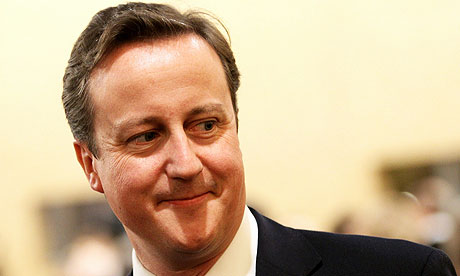Coalition shelves plans to protect public sector whistleblowers
Guardian pledge tracker project finds promise to shield those who reveal dangerous or corrupt practices has been dropped
Which coalition pledges have been broken?
Which coalition pledges have been broken?

A promise to protect whistleblowers in the public sector was one of a series in the coalition's plans designed to make government more transparent. It follows concerns that people have been too afraid to speak up when things are going wrong in government, schools, hospitals or social services, for fear of later being penalised.
A plan for a "big society day" to celebrate volunteers working in the public sector, part of David Cameron's major programme of reform to encourage community groups to take over services, has also been quietly shelved.
The coalition document, which set out the agenda for the Liberal Democrats and Conservative government in May, says: "We will introduce new protections for whistleblowers in the public sector."
A draft structural reform plan in June, updated again in October, noted that work had started on how the whistleblower protections could be implemented, stating that the plans were "ongoing". However, the measure was omitted from a final business plan for the Cabinet Office published two weeks ago. The plans for a national day to "celebrate and encourage social action", another promise in the coalition document, has also fallen off the government's immediate agenda.
The omissions were identified through a unique project the Guardian is undertaking to track the progress of all the coalition's plans and identify drift from the original coalition agreement. The pledge tracker project will be constantly updated to track progress on government work to identify where delays occur.
American federal employees have had legal protections to blow the whistle for over 20 years and the rules were expanded last year so that they cannot be punished at work for alerting the authorities to misuse of technical or scientific advice and to provide a channel for people to provide evidence about federal agencies directly to the US Congress.The Cabinet Office insisted the plans for new protections for whistleblowers would go ahead, but could not give any timescale. One union leader claimed they were being delayed for fear that cuts would create such turbulence in the public sector that protection for whistleblowers would prove too problematic for the government.
Mark Serwotka, the general secretary of the Public and Commercial Services Union, the biggest civil service union, said: "It might be convenient for the coalition to ditch this commitment at the same time as stirring deep resentment and anger among public sector workers, but it would be morally indefensible. No one understands the importance and value of public services more than those who work to deliver them and they should have every right to stand up and defend those services from being cut or undermined."
David Cameron said last week that he wanted the government to become one of the most transparent in the world as he took the unprecedented step of publishing accounts of nearly all government spending since May. It was the latest step in the coalition's promises to make government more transparent, which have also included publishing names of senior civil servants and pay structures across the government, and was warmly welcomed by freedom of information advocates, including the information commissioner, Christopher Graham.
However, ministers have acknowledged struggling with some areas of the transparency agenda. The Cabinet Office minister, Francis Maude, said last week that such a high level of transparency would be "uncomfortable" for ministers, but that by opening public scrutiny it would help eliminate waste and companies would be encouraged to undercut one another.He also revealed that he has faced opposition from businesses to plans to publish all public sector contracts above £25,000 from January, removing confidentiality clauses from all such contracts unless there were compelling legal reasons – which might include national security or protecting personal data – not to.
